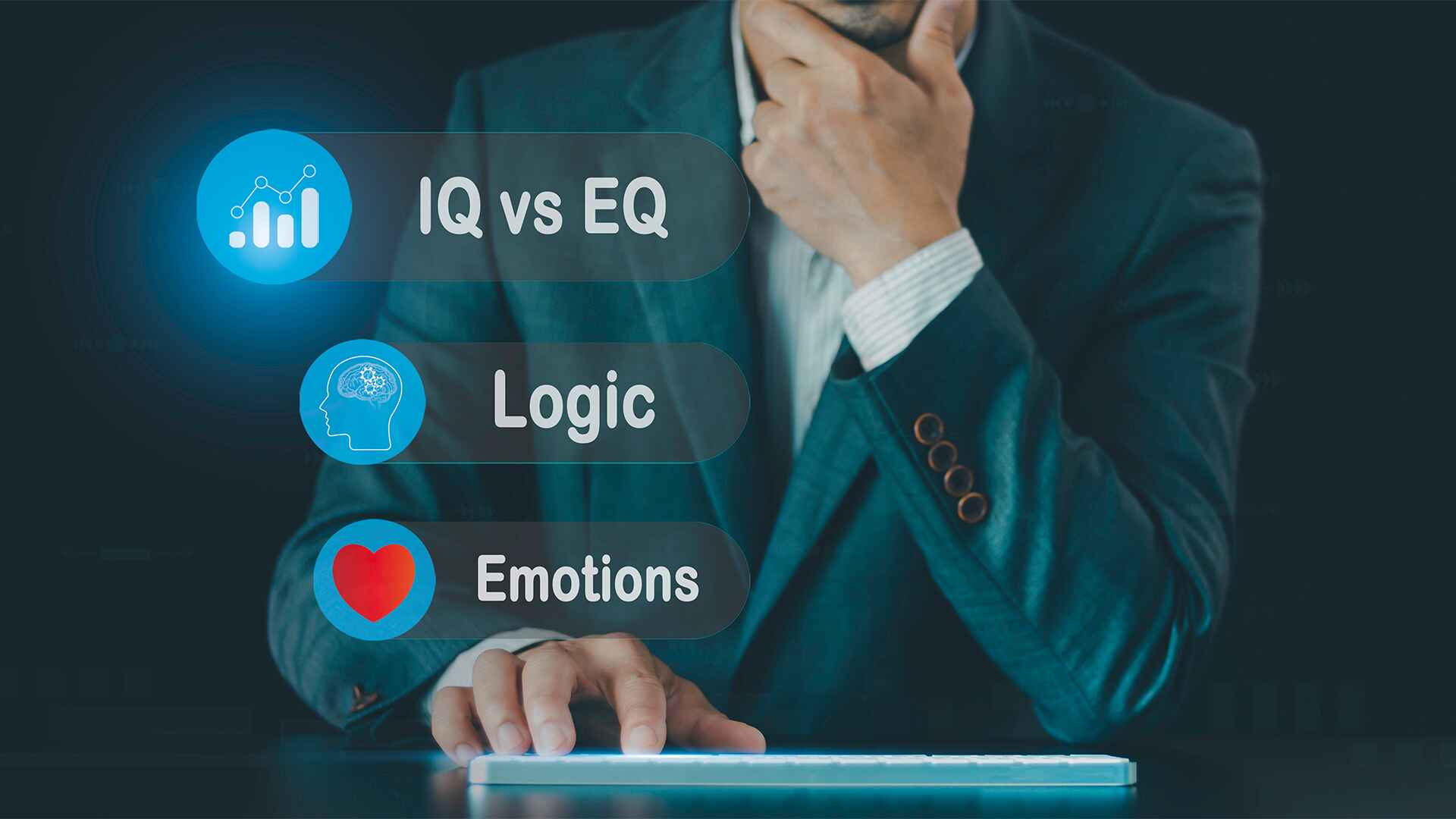
In modern, fast-paced work environments, traditional measures like IQ are no longer relevant. Increasingly, employees today look for employers with higher emotional intelligence (EI).
Also known as emotional quotient (EQ), it is an important skill for collaborative teamwork, leadership, and workplace harmony. Let us understand why EI is the secret weapon for the success of modern businesses.
Schedule a call with a Pragati Leadership expert to discuss how we can support your strategic objectives.
Schedule your CallWhat is Emotional Intelligence?
It is the ability to –
- Understand your emotions by recognizing what you are feeling and why
- Manage your own emotions, regulate impulses, remain calm in stressful situations, and adapt to changes
- Understand other people’s emotions, picking social cues, empathizing with their perspectives
- Managing relationships, effective communication, conflict resolution, inspiring and influencing others
Importance of Emotional Intelligence in Modern Work Environments:
- Increase Collaboration and Teamwork –
Leaders with a higher EI foster a collaborative culture promoting effective communication and understanding within their teams. Managers who are aware of their emotions and empathize with others avoid misunderstandings, effectively resolve conflicts, and encourage a positive work environment, bringing in collaboration within the team. - Enhanced Leadership and Management –
Emotionally intelligent leaders inspire loyalty and trust. Employees feel understood and valued, promoting greater engagement and motivation. Often, leaders with lower EI may find it tough to connect with their teams, which may reduce morale and increase employee turnover. - Greater Resilience and Stress Management –
Today’s work environments are stressful with multiple challenges and deadlines. When people have higher EI, they are better equipped to handle stress, stay calm, and make informed and rational decisions in tough situations. Greater resilience and stress management are beneficial to maintain mental health and increase productivity. - Better Customer Relationships –
Customer experiences and service greatly rely on empathy and understanding, which are fundamentals of emotional intelligence. People who are emotionally more intelligent can listen to customers’ concerns better, empathize with their emotions, and offer constructive solutions. This enhances customer experiences and plays a vital role in improving relationships. - Efficient Conflict Resolution –
Emotionally intelligent leaders can use empathy to understand emotions of employees during conflicts and empathize with their feelings. Additionally, they can manage their own emotions and reactions to remain unbiased. This allows leaders to resolve conflicts in a way where everybody wins, thereby encouraging collaborative solutions and lasting resolution.
Incorporating EI in Leadership Training:
To cultivate emotional intelligence in their people, companies must encourage and integrate corporate leadership training programs. Here are some things participants can learn in such programs:
- Identify Feelings –
Participants will learn to pause and identify their feelings multiple times in a day. Simply naming your feelings can be powerful and brings self-awareness and mindfulness. Additionally, the program will help you to identify your triggers that may be causing extreme reactions. An effective leadership coaching program provides techniques to help you pause before responding to any situation. - Active Listening –
This is an important foundation for effective communication. Paying more attention to others, asking questions, and being empathetic helps to build stronger relationships and improve conflict resolution. - Being Attentive to Non-Verbal Cues –
Emotionally intelligent leaders not only listen actively but are also aware of non-verbal cues. They can understand the body language and facial expressions to understand what other people are feeling. An emotional intelligence training program helps you to develop the skills needed to understand non-verbal cues to effectively communicate with others. - Continuous Feedback –
Seeking feedback from your colleagues, peers, and subordinates will help you bring self-awareness. It is equally important to reflect on the feedback to understand other people’s feelings towards you. An effective training program offers ways to give and receive constructive feedback to slowly build your emotional intelligence.
EI is not just another soft skill but a critical component of effective leadership. Today, when employee engagement and well-being are important, leaders must develop their EI to effectively navigate through the complex workplace environments.
By including EI into leadership training, companies can help their leaders to become strategic thinkers while being empathetic and inspiring. Pragati Leadership is dedicated to helping companies develop emotionally intelligent people to drive organizational growth and success and foster a positive work culture. Ready to take the leap? Check out our EI training programs today.
Share on Social Channels
Our Categories
Categories
- Behaviorial (7)
- Blog (271)
- Certified People Manager Program (3)
- Coaching (9)
- Corporate Trainers (7)
- Developing Collaboration (12)
- Emotional Intelligence Training (12)
- Executive Leadership Program (29)
- First Time Manager Training (12)
- Growth Mindset Course (3)
- Inspirational Leadership (23)
- Inspiring and Successful Leadership Awards (23)
- Leadership Awards (44)
- Leadership Development (124)
- Leading Virtual Teams (6)
- Management Development (29)
- Marketing (2)
- Negotiation Skills Training (7)
- Organizational Transformation (24)
- Others (24)
- Stakeholder Management (3)
- Strategic Leadership Development Program (4)
- VUCA Leadership (2)
- Wholesome Leadership (23)
- Women Leadership (15)
Recent Insights
At the Pragati Leadership Inspiring & Successful Leadership Awards 2025, we had the privilege of...
At the Pragati Leadership Inspiring & Successful Leadership Awards 2025, the room was filled with...
With the growing awareness of the need to enable individuals to achieve their fullest potential,...
In engineering-led industries, the hallmark of strong leadership is the ability to convert technical intent...
In manufacturing-led enterprises, leadership is shaped by the ability to balance continuity with reinventiodo so...
